Lock cylinder loose, wobbly or spinning? Locksmith Wandsworth is prepared ot help!
Contact us todayCall Locksmith Wandsworth today!
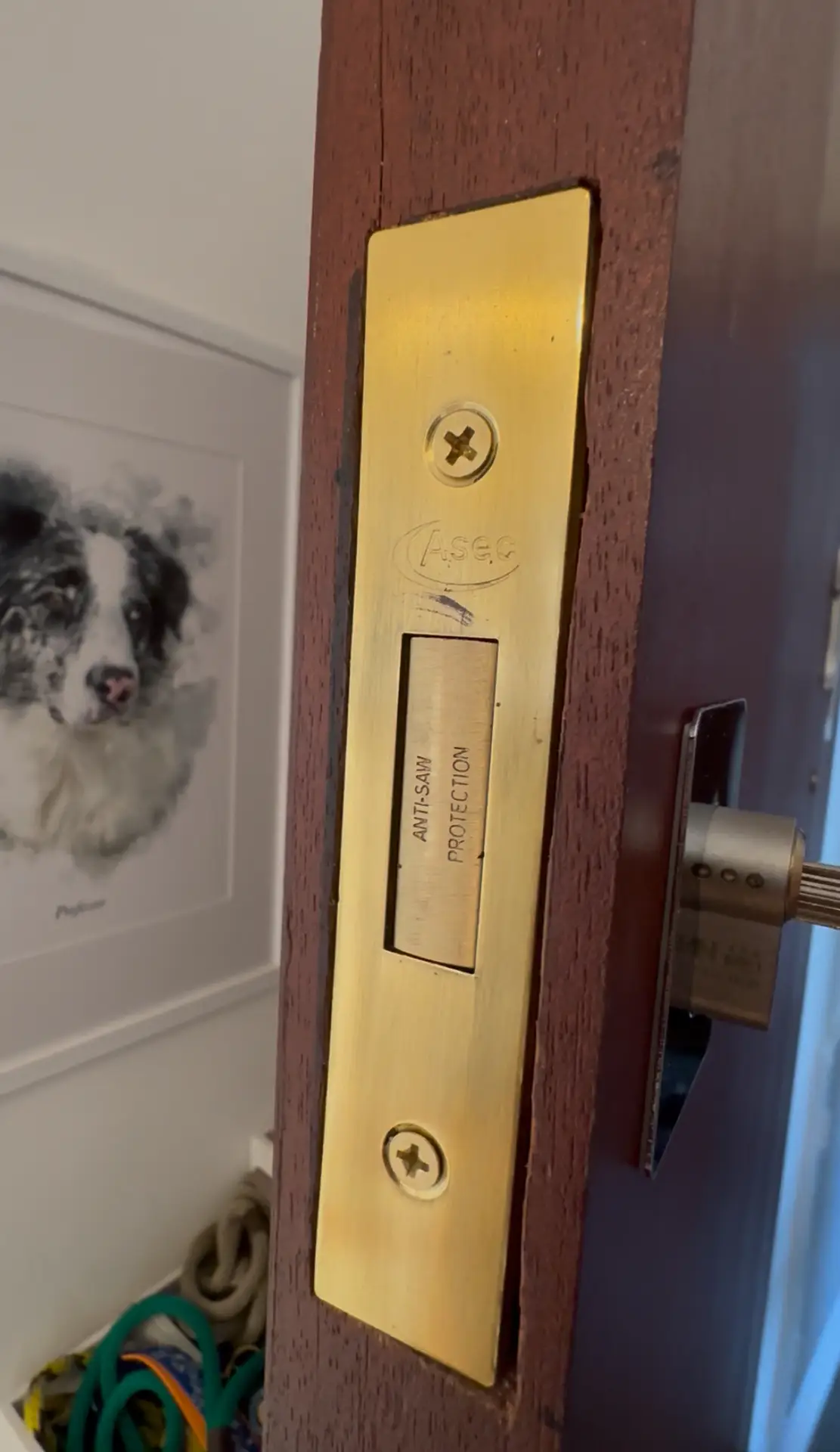
If your lock cylinder suddenly feels loose, your key spins in the barrel, or your door handle feels wobbly, it can be worrying. A cylinder loose issue isn’t only just frustrating, but it can compromise your security to a great deal. However, you shouldn’t be found panicking. In most cases, a professional locksmith is usually the one that can help inspect, tighten, or replace the cylinder – doing all that without making any kind of damages to your door.
At Locksmith Wandsworth, we are here to handle all kinds of lock and door handle problems you may have encountered. Starting from minor cylinder movement to full replacement, we are responsible for making sure that your door works smoothly and stays secure as you want it. It doesn’t matter if it’s a spinning cylinder, a jammed key, or end shake in the lock assembly; we are here to provide fast, same-day repair in Wandsworth and nearby London areas.
Call: 07824822141
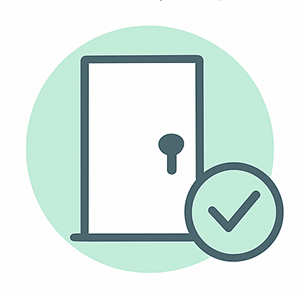

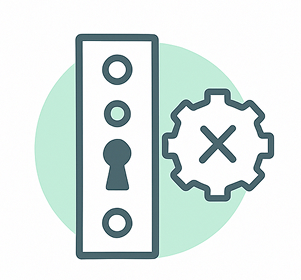

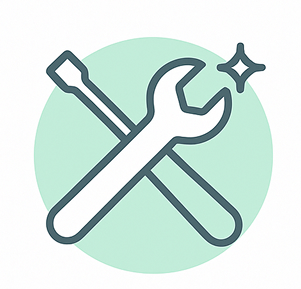

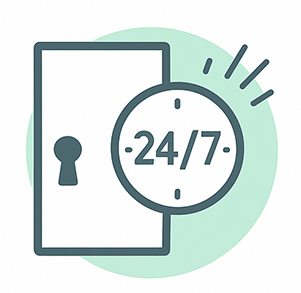

It’s very good that you know the warning signs of a cylinder loose issue as it can really save you from bigger problems later on. A loose cylinder would not just make your door handle feel wobbly — it could also affect your bolt, pins, shaft, and even your strike plate.
That’s why oftentimes, there are just very little warning signs that you may have to inspect before the lock goes down the drain completely. So some of what you should be on the lookout for should include: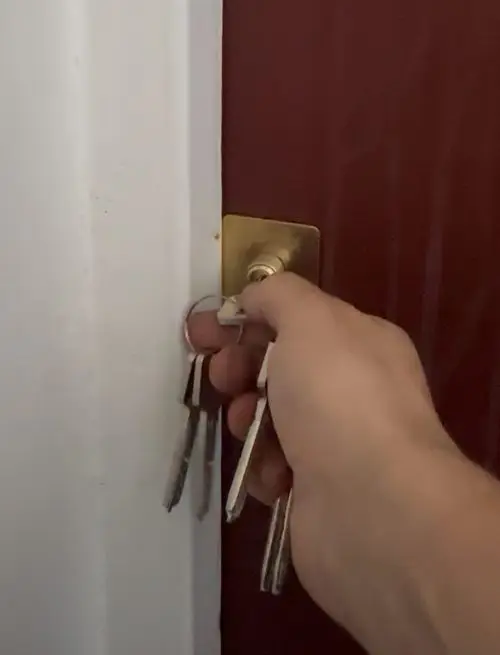
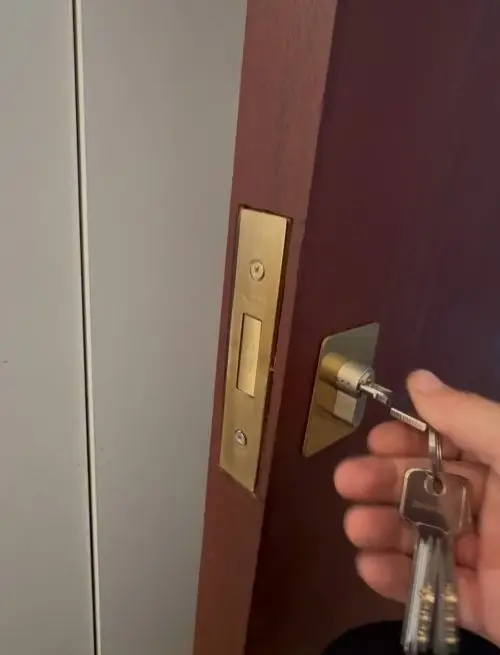
When your key rotates with extra movement or somehow it now seems to slide in the barrel, hold up a little bit cause that’s a strong indicator that the cylinder is loose. Pretty soon, you’d begin to see that this extra movement can begin to wear down the pins, shaft, and barrel. This would make your door handle or knob feel like it’s shaking and even misaligned most of the time.
You may also notice that your key doesn’t work so well with the bolt in terms of engagement. Or then again, it has started to feel like it’s “floating” in the cylinder. In some cases, this leads to end shake; meaning a small but noticeable back-and-forth movement in the lock assembly whenever the door handle is being used.A spinning cylinder is another common warning sign. This usually indicates that the fixing screw, rod, or pin inside the barrel has now become loose. When this happens, the cylinder movement increases, (not in a good way, of course) and this makes the key harder to control and also goes on to reduce the security of your door.
Sometimes, the poor screw that keeps the cylinder in position has worked itself loose because of the repeated and continuous use or poor installation. Sadly, this can also cause end shake in the lock assembly, which is what makes the bolt harder to operate and may eventually jam the key. Tip: If your cylinder spins, by all means, do not try to force the key. When you try to force the key, it can damage the pins and shaft, which would just make you gather up extra costs. A professional locksmith can tighten the screw, align the cylinder, and secure the barrel, your easy way of restoring the smooth cylinder movement.A door handle that feels wobbly when you turn the key often points to a cylinder loose problem. This usually happens when the bolt, shaft, or rod inside the cylinder is not tight, making the door handle to move slightly.
This slight movement may not seem like a big issue at first though, but over time it can cause end-shake in the lock assembly. Somehow, this could on its own go on to cause some real struggle in putting the latch or bolt to some real action. At this point, you might also notice that there are a little tiny gaps between the door handle or knob and also the door surface. You may not need any extra sign as this is your clear pointer that either the cylinder or screw needs attention.
Tip: If your door handle feels wobbly, at that instant, seek a professional locksmith; he would tighten the screws, secure the rod, and adjust the cylinder so the knob can feel solid again. The added good news here is that you’re preventing long-term wear on your pins, shaft, and barrel.Sometimes, the strike plate on your door frame can also be the culprit. Once you find it loose, or perhaps if the screws holding the door handle, cylinder, or knob are looking like they’re not so tight, the bolt and barrel would shift a little bit every time you try to use the lock.
Apparently, this movement can cause a jammed key or even make the pins and shaft inside the cylinder get very weary. A loose strike plate could cause more damage, which strongly has the potential to affect the latch’s alignment. This misalignment can further cause the bolt to be fully engaged.
Tip: Check your screws and strike plate occasionally. Even if the door handle and cylinder look like they’re okay, still check them because one minute they can act like they’re okay and another minute they’re loose. A professional locksmith can help detect instances of looseness and proceed to tighten/ it up.If your bolt doesn’t work like it’s supposed to, or better put, it doesn’t work like you’re used to, or the key somehow gets stuck, it means that your cylinder or lock assembly might be worn or misaligned.
The problem most of the time is not the cylinder itself; it could just be that the issues are with the strike plate, shaft, or door handle assembly.
Tip: Don’t ever try to force a stuck key. Don’t! I repeat, don’t! That’s just you worsening the issue. It breaks the pins or shaft inside the cylinder, which can create more problems for you. Instead , you should call him a professional locksmith who can inspect, tighten, and adjust the barrel, rod, and screws.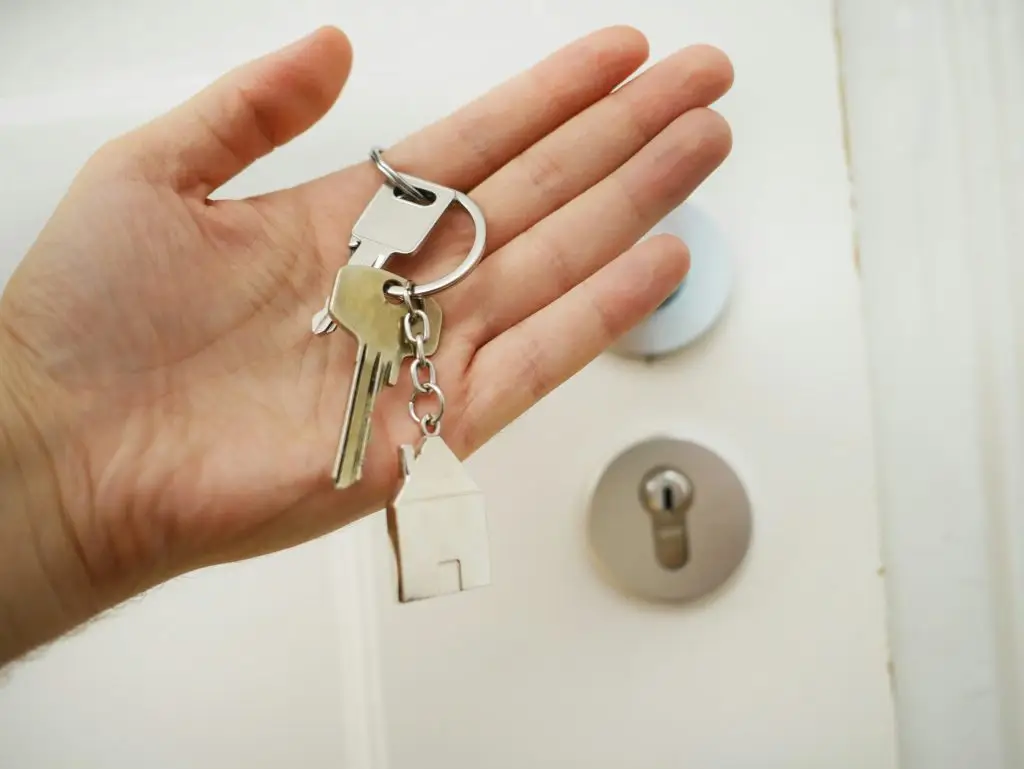
Our professional locksmiths handle everything from repairs and cylinder replacements to security upgrades across South West London.
Need help right away or want to book an appointment? Fill in the form below and we’ll get back to you shortly.
Yes, if the screw, rod, or barrel is just loose. Replacement is the only thing needed for worn pins or shaft damage.
No, we only remove the cylinder, not the full lock assembly,
After diagnosing the problem, which is our first step in fixing, the usual repair would take 30 to 45 minutes, and this depends on the door, cylinder, and bolt type.
Yes, we can replace your cylinder with a high-security anti-snap model during the same visit.